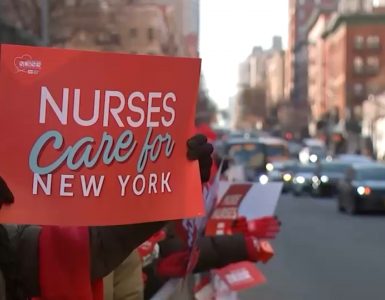Erev Rosh Hashana
Some individuals have a custom to fast on Erev Rosh Hashana. Individuals who are weak or ill, however, need not fast. If one has generally observed this custom, performing Hataras Nedarim to annul the vow to fast is proper.
Some Jewish men have a custom to go to the Mikva on Erev Rosh Hashana. One who cannot do so may stand under a running shower for six consecutive minutes (which constitutes “Tisha Kabin”) as a substitute for immersion in a Mikva.
Eruv Tavshilin (for Rosh Hashana 5785): The medical center’s rabbi puts aside the food for the Eruv and acquires it on behalf of all patients and visitors of the hospital throughout Yom Tov. This permits the performance of Melacha on Yom Tov for the sake of Shabbos (specifically, those Melachos that may generally be performed on Yom Tov).
Rosh Hashana Night
It is customary to eat certain foods (known as “Simanim“) as a good omen for the coming year, and to recite a special “Yehi Ratzon” over each one. The hospital kitchen provides our patients with a set of these foods.
One who cannot eat the Simanim due to health reasons can place the foods in sight and recite the “Yehi Ratzon” without Shem u’Malchus. One who does not have Simanim can also recite the “Yehi Ratzon” without Shem u’Malchus.
Rosh Hashana presents us with the extraordinary privilege of crowning Hashem as King over the Jewish people and the entire world through our Tefilos and Teki’as Shofar. These holy days represent a unique period of Divine favor when Hashem, our merciful Father and omnipotent King, listens with special attention to the prayers of His chosen nation and decrees blessings for the coming year, both for each individual and for our people as a whole.
Given the profound spiritual opportunity offered by these hallowed days, every person should make reasonable efforts to attend davening and, most importantly, to hear the Shofar, despite the challenges that may exist. Through such dedication, may we all merit a good and healthy year for ourselves and our families, b’Ezras Hashem.
However, if, despite a person’s sincere intentions, circumstances beyond his control – whether due to extenuating conditions or medical limitations – prevent him from attending the Tefilos or hearing Teki’as Shofar, he should remember that “Hashem desires the heart”. Chazal say: “If someone intended to do a Mitzva but was prevented by circumstances out of his control, it is counted as though he fulfilled it.”
Rosh Hashana Davening
It is permissible, even advised and recommended, to pray for the sick and mention them by name. Likewise, a person may make personal requests for himself and his family members while davening during these days. The ideal place for these requests is at the end of Sh’mona Esrei before the final “Yihyu l’Ratzon“.
Somebody davening without a minyan should ensure not to daven Musaf on both days before three Sha’os Z’maniyos have passed.[2]
If a person is davening Musaf without a minyan and will not hear Chazaras haShatz, he should prostrate himself upon reciting “va’Anachnu Kor’im“, medical condition permitting. It is important to place a piece of paper, a towel, or the like to separate his head from the floor.
If a person has a medical condition, feels weak, or is occupied with treating patients, and cannot daven both Shacharis and Musaf, he should prioritize Shacharis. However, he should try to recite the series of ten P’sukim of Malchuyos, ten P’sukim of Zichronos, and ten P’sukim of Shofros. If this is impossible, he should recite at least three P’sukim from each set.
If a person is unable to attend the entire Tefila in Shul, the order of precedence is as follows:
- Chazaras haShatz of Musaf
- The silent Musaf
- Shacharis
- Kri’as haTorah
Teki’as Shofar
Blowing the Shofar on the first day of Rosh Hashana is a Mitzva d’Oraisa, and on the second day a Mitzva d’Rabbanan. Sefarim of the Kadmonim reveal that during Teki’as Shofar Hashem moves to His Kisei Rachamim, the Shofar blasts silence the Satan’s prosecution, and our Tefilos are brought positively before Hashem.
Listening to the Tekios fulfills a Mitzvas Asei which elicits Hashem’s Rachamim. Therefore, one should endeavor to observe the Mitzva correctly by listening carefully to the Tekios and the Brachos.
The Department of Religious Services arranges Teki’as Shofar for patients and staff and will visit all hospital departments on both days. Thirty Shofar blasts will be sounded in each department.
One should stand without leaning during Teki’as Shofar and the Brachos. If he is weak, he may lean, sit, or even lie down, as his strength permits.
If a patient cannot get to the Beis haKneses, he fulfills his obligation by hearing the Shofar blowing in the hospital corridors or from the shul. It is also proper to try to hear the Brachos. If he is in a place where it is improper to daven due to offensive materials or odors, he should preferably move to a different location for Teki’as Shofar. When this is impossible (such as if he is bedridden), he fulfills his obligation.
If he did not hear the first set of Tekios (the “Tekios d’M’yushav” before Musaf) and arrives in shul for the second set of Tekios during Chazaras haShatz, he should say both Brachos silently before the Tekios (“Lishmo’a Kol Shofar” and “Shehecheyanu“). On the second day, Sephardim should say only “Lishmo’a Kol Shofar” but not “Shehecheyanu“.
According to Sephardic custom, women do not recite a Bracha on time-bound positive commandments. A woman who missed hearing the Brachos on Shofar should not say them herself.
One who did not manage to fulfill the mitzva of Teki’as shofar until Shekia should do so then without a Bracha. After Shekia, no shofar blowing should take place.
A Hefsek during the Tekios
Lechatchila, one should hear all 100 blasts, and at least the first 30, without any Hefsek. In hospital settings, it is common that physicians are interrupted by urgent phone calls. If that occurs, the following Halachos apply:
If the interruption was between the Shevarim and Terua in a Seder of Tekia-Shevarim-Terua-Tekia (“TASHRAT”), he must hear that TASHRAT again.
If he made a Hefsek during any of the other Tekios, he does not need to hear the Kolos that he has already heard again. He is obligated only to complete the Kolos he has not yet heard.
If the Hefsek took the length of time it takes to complete an entire set and he was in a place where Tekios are not permitted (such as the bathroom), he needs to hear the set again.
If he did not hear the entire Tekia (perhaps he entered or left the shul in the middle), he must hear it again. Hearing half a Tekia does not suffice.
Yom Tov Sheni of Rosh Hashana
One may not prepare anything on the first day of Rosh Hashana for the second day. This includes Melachos or acts otherwise permitted on Yom Tov. Therefore, one may not prepare the second night meal or light Yom Tov candles of the second night until Motza’ei Yom Tov Rishon.
Shehecheyanu
A woman says the Bracha of Shehecheyanu at Hadlakas Neiros on both nights of Rosh Hashana. LeChatchila, she should wear a new item of clothing or place a Shehecheyanu fruit that she hasn’t eaten this year in front of her. If she doesn’t have either of these, she should nevertheless recite the Bracha. The hospital will supply patients with a Shehecheyanu fruit.
A man says Shehecheyanu during Kiddush (even if he lit Yom Tov candles). He should similarly prepare a new fruit or item of clothing, but if he doesn’t do so, he should still recite Shehecheyanu.
Tashlich
It is customary to recite Tashlich after Mincha on the first day of Rosh Hashana near a water source (any water source is acceptable). One who cannot attend Tashlich can recite it anywhere else.
In the medical center, we have an aquarium on Floor 6 in the visiting room of the Geriatrics department, as well as in the Children’s Hospital building on Floor 7, next to the Department of Pediatrics.
If someone could not say Tashlich during Rosh Hashana, he can recite it during the Aseres Yemei Teshuva.
[1] [Editor’s note: These guidelines were published in Hebrew by Shaare Zedek Medical Center for Tishrei 5785.]
[2] [Editor’s note: See Shulchan Aruch O.C. 591:5. This is the same time as the Sof Zman Kri’as Sh’ma.]












Add comment